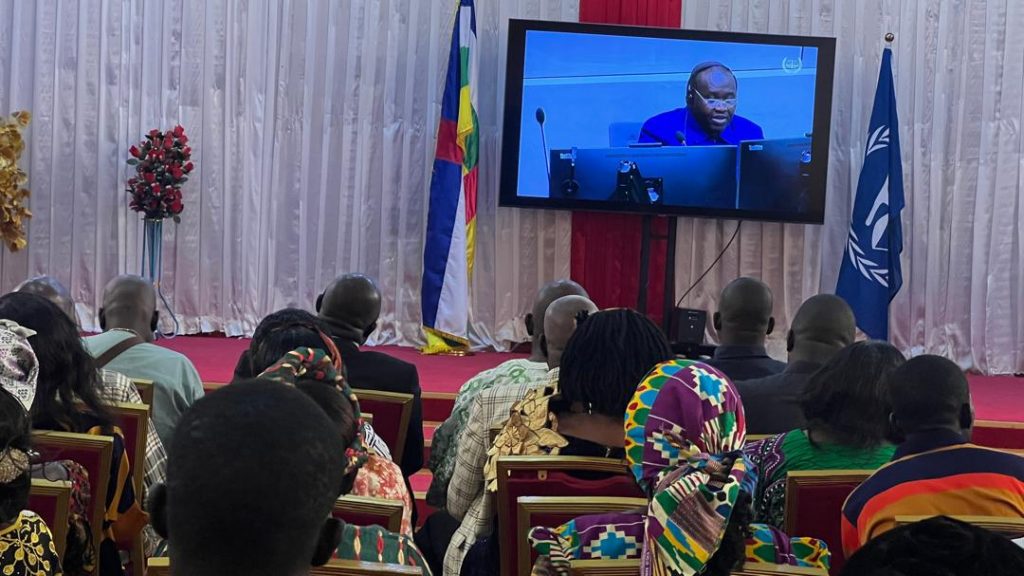
[ad_1]

The former anti-Balaka coordinator was questioned by ICC judges on Tuesday and Wednesday as part of his “unsworn statement”. This hearing, mandated by the Rome Statute, allows the accused to try to convince the court after a confirmation hearing. This phase of the trial was broadcast live from Bangui and was widely watched by his relatives and representatives of the victims.
On the first day, Patrice-Edouard Ngaïssona, dressed in a blue suit and sitting in an armchair surrounded by his lawyers, calmly presented the facts, in a speech that emphasized his contribution to peace alongside successive transitional governments under transitional president Catherine Samba Panza from 2014 to 2016.
The man explained that his choice of peace allowed him to participate in the Brazzaville Forum, a choice that he believed was different from the path chosen by General Angelo and many other radicals who did not follow the path of appeasement.
He cited several names, including that of Jean-Jacques Demafouth, a presidential adviser, who, in his own words, wanted his head at any price. In order to concretize the elements of his innocence, Patrice Edouard N’Guessona held numerous conversations with the political, administrative and military authorities of the time, including with Martin Toumenta, a Cameroonian general in the United Nations force.
Although the hearing was originally scheduled for one day, the court extended the defendant’s unsworn statement to the next day because Patrice-Edouard Ngaïssona was not feeling well.
The former anti-Balaka coordinator returned on Wednesday with more arguments, presenting himself as a peacebuilder and calling for acquittal. For him, the transitional government does not understand him. “It is the responsibility of the transitional government to take on the responsibility of achieving peace. I did what I could so that the government would follow my quest for peace. If the government had helped me in my quest for peace without prejudice against my ethnicity and had continued to support Bozizé from February to April, we would have finally reconciled and found peace quickly. I held out until the 2015-2016 elections. The idea that I was trying to take advantage of the crisis is a mirage, as there is no evidence that I took advantage of the anti-balaka. On the contrary, I sacrificed a lot to restore peace”he declared.
To conclude his speech, Patrice-Edouard N’Guessona presented a political program focused on peace and justice if he is acquitted, a program that the party’s secretary general, Samson Ngaïbona, said was in perfect harmony with the ideology of his party, the PCUD.
N’Guessona’s absence represents an insurmountable void in his family. His aunt, Jeanne Silas Béoroféï, finds satisfaction in his request and hopes that justice will be granted so that her nephew can be reunited with his family.
“Yesterday, when I came back as he said, I found strength, but not completely. Because he was not there. I had pain in my legs and he paid for the treatment. Today, he is not here and it is a shame. Nothing is beyond God. We will look to justice and seek a fair decision to have him return. It will be a great joy for the family.”
Patrice-Edouard Ngaïssona was arrested on December 12, 2018 and subsequently transferred to the International Criminal Court, where he is currently being prosecuted for war crimes and crimes against humanity committed in the Central African Republic between December 2013 and December 2014 as a coordinator of the anti-Balaka militias who initiated hostilities against the Séléka rebellion, which had just come to power under François Bozizé.
– Also read:Justice: Patrice Edouard Ngaïssona appears again at the bar of the International Criminal Court
[ad_2]
Source link


